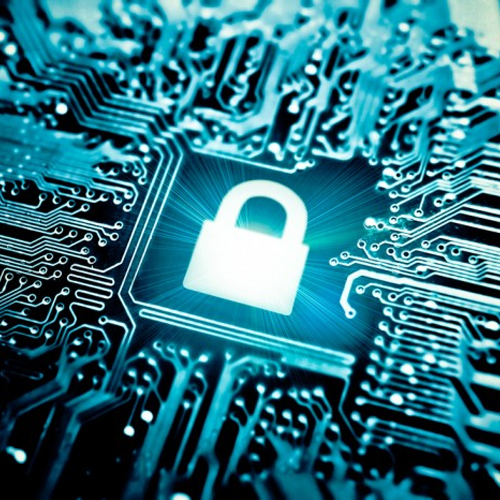
The Global Mesh
We are on the verge of a new world: a radically decentralized, more highly interconnected world. A global society that will fundamentally change your costs, efficiency, and reach, opening up a wealth of new opportunities for those who prepare for it; presenting a new set of challenges and pitfalls for those who don’t.

Decentralization
Society will become more decentralized in the coming years and this important societal shift will be enabled by technology.

Trust Engine
Trust is the lubrication that makes it possible for organizations to work. Click here to learn more about how technology will enable us to establish trusted online relationships.

Privacy & Security
The Global Mesh will soon provide us with a secure and private platform to store, manage and share our information through the use of strong encryption and multi-factor authentication
The Global Mesh
We are on the verge of a new world: a radically decentralized, more highly interconnected world. A global society that will fundamentally change your costs, efficiency, and reach, opening up a wealth of new opportunities for those who prepare for it; presenting a new set of challenges and pitfalls for those who don’t. Many institutions we once knew and trusted will fall by the wayside. Businesses that do not adapt – quickly – potentially face serious consequences over the next few years. Welcome to the global mesh.
This white paper will show your business how to survive and prosper in a world where:
- Your competition will be increasingly relentless and global The value of intellectual property could change dramatically
- Access to telecommunications and capital will be radically democratized
- An entirely new approach to risk management is needed
- An exponentially growing service economy will create new opportunities for us all
Recent decades have produced more technological changes than all of human history before it. We will show you how these trends will continue to accelerate over the next decade – and more importantly – how you and your business can prepare for these changes.
Understanding the Global Mesh
From September 26 to December 15th, 2014 protesters took to the streets of Hong Kong in a series of sit-in pro-democracy rallies. Peaking at 100,000 at any given time, their use of umbrellas as defense against tear gas gave rise to their moniker: The Umbrella Movement. In an effort to disband the protestors, the Chinese Government shut down cellular telephone service so the movement would be unable to communicate internally. But instead of dispersing, the protesters bypassed the traditional grid and used an app called FireChat that allowed them to connect their devices directly by relying on the Bluetooth or Wi-Fi links that exist between the phones By creating this network independent of the internet, FireChat became the glue that kept the protesters communicating with each other – and no authorities could stop it.
This event can be seen as a metaphor for where technology is going. Individuals who were once were dependent upon “providers” for various services will soon obtain said services through a network of individuals. Think of what AirBnB and Uber did for their markets: democratized them in a global mesh of independent resources. This trend will grow and change many other aspects of how we do business, from labor resources to capital to information technology and beyond. We are accelerating quickly toward a world where commerce takes place in a human cloud linked by technology, instead being centralized within large institutions.

The Impact of Disruptive Technology – 1800s Style
In 1860, messages were delivered via a peer-to-peer network – of 400 – 500 horses. The Pony Express carried letters, gold and valuables clear across the United States in lockable leather bags, using a fresh steed every 10 miles. They could make the trip from St. Joseph, MO to post-Gold Rush California in an unheard-of 10 days. Then the Pacific Telegraph line came along in 1861 and changed everything.
Since then, the amount of time it takes to deploy new technology has accelerated dramatically. It took the telephone 75 years to reach an audience of 50 million people. Radio and TV took 38 and 13 years, respectively. The Internet, four years. The smartphone app Angry Birds? Just 35 days.
Three Trends Driving the Global Mesh
Not long ago, the rise of the global mesh was a matter of conjecture, and lied in the realm of futurist predictions. Today, it is increasingly becoming a predictable result driven by the convergence of three trends:
Emerging technologies continue to shrink in size while becoming more powerful. Allowing for the wow factor of their initial rollout, they will also become less expensive. Moore’s Law, named after Intel co-founder Gordon Moore, states that processor density will double every 18 months. This principle has now held true ever since 1975.
Decentralization
Society will become more decentralized in the coming years and this important societal shift will be enabled by technology.
The vast majority of human evolution occurred in small, decentralized societal groups. This changed with the rise of agriculture about 10,000 years ago at which time humans began to organize into larger societies. This created a problem for us because there is a cognitive limit to the number of trusted social relationships that humans can maintain. This is known as Dunbar’s number and is estimated to be about 150.
This problem was solved be creating governments and other centralized institutions to organize society and facilitate trusted interactions. This is the world that we have come to accept as the natural state of human society, but the reality is that we function much more effectively in small social groups.
The combination of the Global Mesh and Blockchain technology will enable us to shift back towards a more decentralized society. We will develop tools and platforms using this technology to enable us to locate people, verify their reputation and conduct business with them. We will transact our business through “Smart Contracts”. For each contract, we will choose the legal framework and currency that make sense, based on the nature of the contract and the locations where we interact. Smart contracts will utilize private, blockchain-based ledgers that eliminate the need for centralized institutions and bureaucracies, such as banks, clearinghouses and government authorities to manage our transactions.
Trust and Competence
Trust is the lubrication that makes it possible for organizations to work.Warren BennisLet’s face it the only two things really need to know about people are whether we can trust them and whether they’re competent.
When we meet someone in person, we are generally very good at assessing whether we can trust them, and we can make this judgement within the first few seconds of meeting them.
When we meet someone in the context of a social group or professional community, they will have a reputation within that community, and even though that reputation is generated and communicated informally, it is generally reliable and we often decide whether or not to do business with someone based on reputations established in this manner.
The online world has also developed mechanisms such as LinkedIn, Amazon product ratings, and eBay seller ratings to evaluate trust and competence and help us make decisions about what to buy and who from. We all rely on these to some extent but we also know that they can all be gamed and there are firms whose entire business model is to shape and control online reputation.
At Infinize, we believe that a solution is coming to the problem of evaluating trust and competence online. This solution will be part of a larger trend of decentralization that will allow us to establish trust relationships and conduct business with anyone on the planet.
Privacy and Security
As new technologies emerge, adoption has historically been based on consumer tradeoff between Convenience and Reliability vs. Trust and Freedom. We currently live in a world where our location and interactions are being tracked by our mobile devices. Most of us have made a conscious decision to accept this loss of freedom because we’ve come to rely on the convenience and reliability that our devices provide.
We’ve also made the same tradeoff in cloud storage. It’s cheap and convenient to store and share files in a cloud server. We know that our information is being mined by Google and other cloud service providers and we’ve decided for now to accept it.
The decisions we make about these tradeoffs tend to be cyclical and are driven by technology innovations as well as societal events. The Global Mesh will soon provide us with a secure and private platform to store, manage and share our information through the use of strong encryption and multi-factor authentication. We will come to demand the Trust and Security of this platform because we will see abuses to individual privacy and the extra security will only be slightly more inconvenient.
What Orwell failed to predict was that we’d buy the cameras ourselves, and that our biggest fear would be that nobody was watching.Keith Jensen
How will this work? Instead of hosting through a traditional cloud provider, our information will be distributed throughout the mesh with strong encryption using keys that are distributed across our devices. There will be no central provider who administers and controls our data for us. We will instead implement our own policies for management, retention and access to our information.
These distributed clouds will organize our information in encrypted parcels that are dispersed throughout the mesh. These “parcels” will be assembled for us when we access our information; and encrypted and disassembled when we update or create new information. The result is that there is no one place where our information can be compromised or hacked, resulting in both improved security and privacy for the individual.
We will be able to access both business and personal information on our devices, Business and personal information will be intermingled on our devices, but our personal information will be managed separately in it’s own distributed cloud, enabling us to securely manage business information on any device without compromising the personal information or privacy of employees and business partners.
What should you be doing to get ready for doing business in the global mesh? Contact us for a free consultation to learn more…
